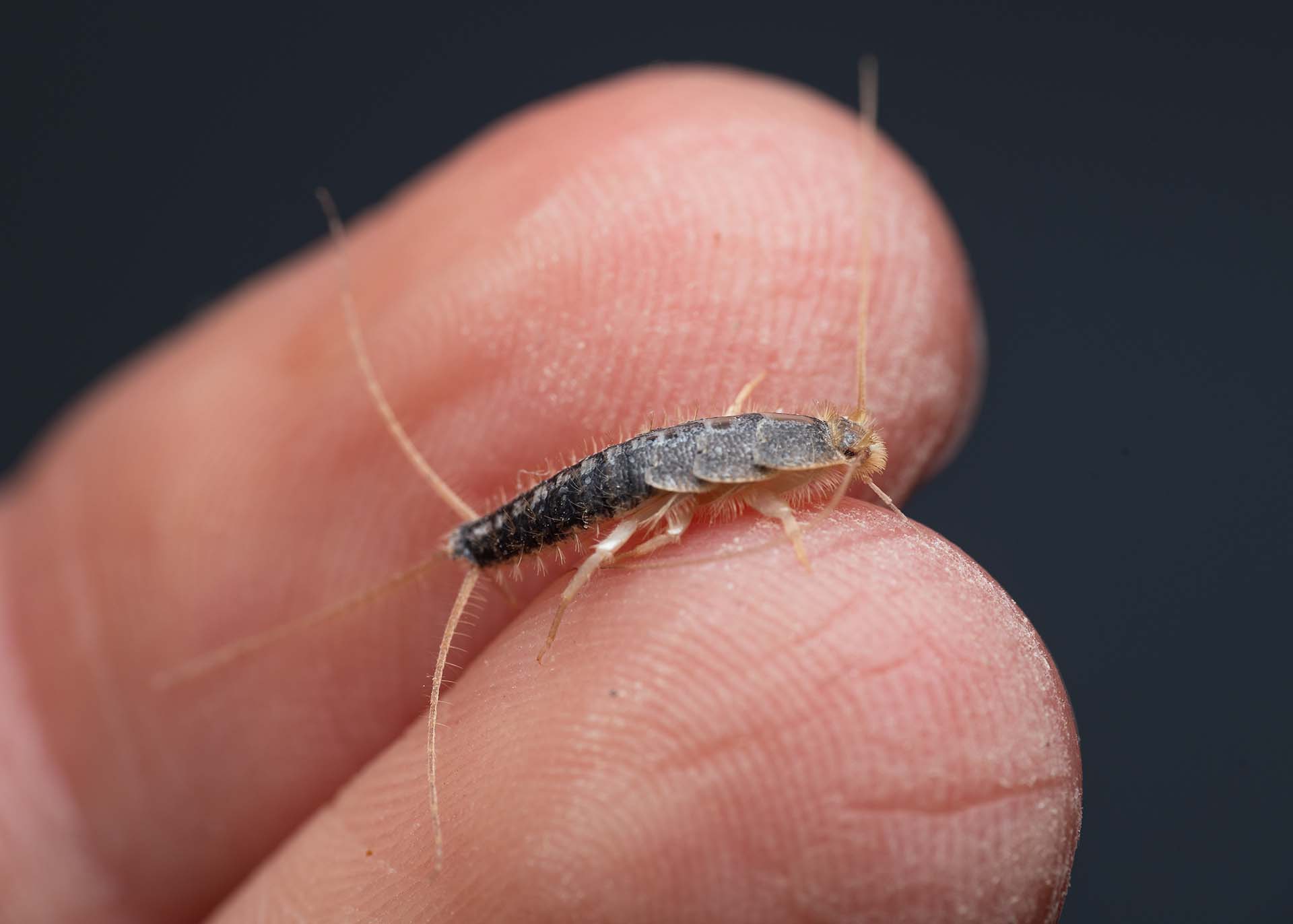What Are Silverfish?
Although harmless to human health, silverfish are pests and can cause damage around the home. They get their name from their silver colouration and from their fish like shape and movements. In this blog article we take a closer look at silverfish, how to identify them, why they are a pest and as always ways to prevent an infestation.
Silverfish identification
Silverfish are insects which on average are 12mm long. They are wingless, have 2 long antennae on their heads and 3 processes extending from the posterior. They move with a wiggle that resembles the swimming movement of a fish. They are wider at the head and taper down towards the tail with a blueish/silver colouration and metallic shine. Silverfish typically live for up to 3 years and tend to live in dark humid parts of the home. Females will lay up to 100 eggs in their lifetimes. The eggs are oval in shape and about 1mm in length. They start off as smooth, white eggs and gradually turn wrinkled and brown before hatching. The nymphs, when they hatch are typically whitish and they develop the blue/silver colouration as they grow and moult.
Problems with Silverfish
Although not as bad as some pests, silverfish will cause damage in the home to things like books, wallpaper, carpets, clothing and plaster and they will also happily eat and contaminate foods which are high in starch such as flour, sugars, pet foods, grains and vegetables. Silverfish can, though, go without food for nearly a year as long as they have a water supply. It has to be noted that silverfish carry no known diseases and do not tend to bite humans or pets and as such are a nuisance simply because of the damage they cause.
Where do Silverfish live?
Silverfish love humid conditions and typically live in dark damp corners of places like attics, basements, bathrooms and kitchens. They favour conditions with 75%- 97% relative humidity and 22°C – 27°C and are active throughout the whole year. Being nocturnal, they are only typically out and about at night so can be hard to spot.
Signs of a Silverfish infestation
It can be hard to spot a silverfish infestation as they are small, very quick and only come out at night. They can however, be identified by the damage they cause. Damage to carpets, books, paper, wallpaper and spoiled food, yellow stains on damaged areas are all indicators that you might have a silverfish problem. In addition, there are typically scale residues and also faecal matter which are tiny pepper like pellets.
Silverfish control
Reducing humidity and removing all sources of damp are really the only permanent solutions to dealing with silverfish activity. As Silverfish like humid environments, one tactic is to get a dehumidifier and remove the humidity in the air. This isn’t always that practical, though. There are insecticides that can be applied, but these will only provide a relatively short-term reduction in activity, unless the damp and humidity issues are also resolved. Non-toxic treatments such as diatomaceous earth can also help reduce activity. Some people claim the following help reduce silverfish activity, although there is no real evidence these work:
- Silverfish are claimed to not like the smell of cedar and using cedar shavings or cedar oil in areas where there are silverfish will help control them.
- Cinnamon is claimed to have a similar effect to cedar and, although humans tend to love the smell, Silverfish hate it.
- Some claim Silverfish are attracted to salt, but when it is too concentrated it can cause them to dehydrate.
- Citrus fruits and cloves are also claimed to help control Silverfish. Using lemon peels (which should be replaced regularly) or whole cloves is suggested to help ward off the insects.
To avoid Silverfish coming back, make sure to reduce humidity and all damp areas, but also remove sources of food, so regular cleaning and keeping food in tightly sealed containers is key.
Help with Silverfish and other pests
If you feel you have a serious issue with Silverfish or any other pests in your home, we at iX5 Pest Control are here to help. Providing Northamptonshire and surrounding areas with a full pest control service for all pest species in both domestic and commercial settings. We provide a 7 day pest control service, and can arrange visits during evenings or weekends at no extra cost. Contact us now and our experts will be more than happy to help you deal with whatever pest issue you might have.

